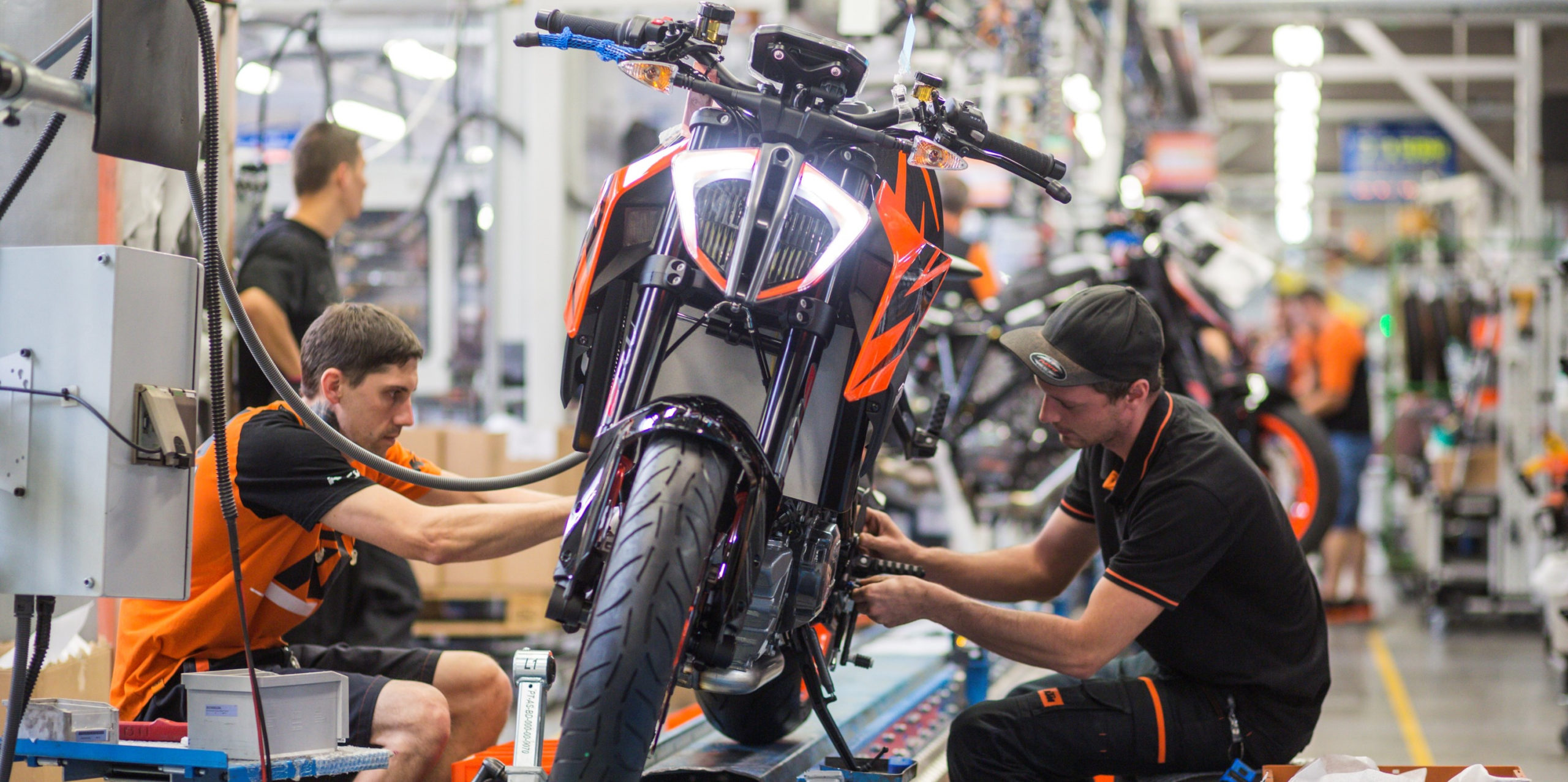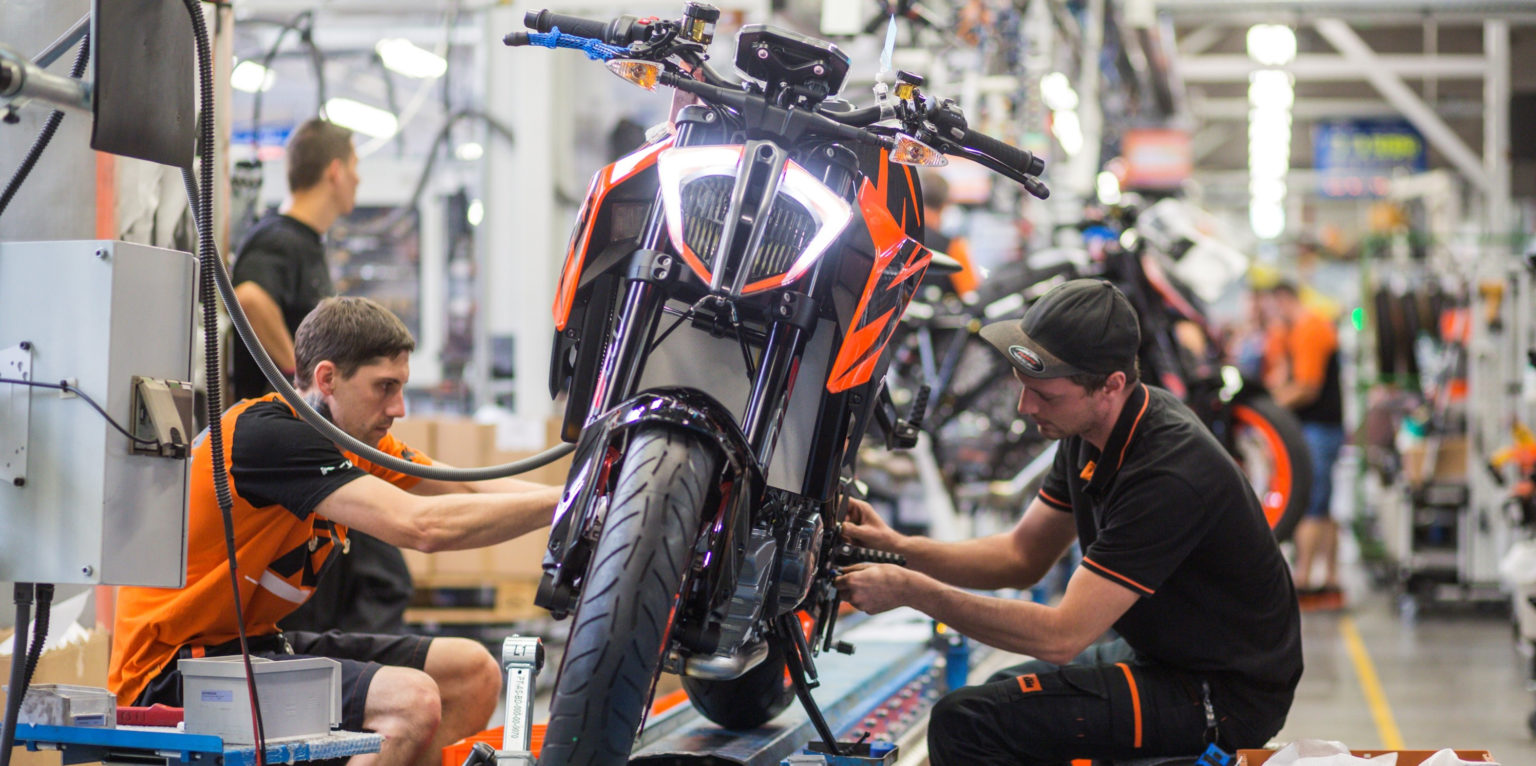
A new piece of research by Oxford Economics shows that the motorcycle sector in the EU and the UK supports about 389,000 jobs through different activities including the manufacturing of vehicles, parts and accessories, and personal protective equipment, as well as motorcycle-related activities.
The study has also found that just in 2019, the motorcycle sector contributed about € 21.4 billion of GDP across Europe. All in all, every € 1 of GDP created directly by motorcycle businesses supported a further € 1.80 of GDP in other industries, due to the various knock-on expenditure impacts.
In terms of tax revenue, the motorcycle sector and related activities generated about € 16.6 billion, making motorcycling an important contributor to public finances, particularly in large markets like Germany, France, Italy, UK and Spain.
Europe-based motorcycle companies export goods for about € 2.1 billion per year
The report also analyzed the role of the motorcycle industry in the area of international trade. EU and UK based motorcycle companies export every year about € 2.1 billion worth of vehicles, parts and components to non-European customers.
The key export markets included the US, Switzerland, Australia and Japan. However, as the study stresses, “European exporters face high import tariffs in China and Thailand as well as India”, all of which are major markets with significant growth potential for European motorcycle manufacturers.
Significant mobility, time savings and environmental benefits
The study prepared by Oxford Economics also examined the additional benefits offered by motorcycles to their users, and to the environment. A scenario analysis suggests that if 5% of those who commute by car across Europe (5.3 million commuters) switched to motorcycles, the aggregate time savings would be 21.2 million days per annum — worth € 3.3 billion to these users.
Motorcycles were also found to offer substantial cost savings due to lower fuel use and operating costs. On average, the cost of commuting by motorcycle (€ 545) was nearly one-third of what it would cost to use a car (€ 1,435) across a year.
The research confirmed that motorcycles have a smaller environmental footprint than four-wheelers, with the average powered-two wheeler in the European vehicle fleet emitting about 99 g CO2/km, less than half of the 210 g CO2/km emitted by the average car (petrol and diesel). Interestingly, motorcycles up to 250 cc were found to emit on average 62 g CO2/km. About 62% of Europe’s two-wheelers fall into this category.
The economic and social importance of motorcycle leisure, sports and events
The study also examined the economic importance of motorcycle-related events, i.e. motorcycle sports, motorcycle trade fairs and events organized by OEMs.
In total, these activities contributed about € 2.1 billion to Europe’s GDP and supported about 38,400 jobs and € 1.2 billion in tax payments. A large part of that impact happened in local communities that greatly benefited from international tourists attending motorcycle-related events.
The study found that about 5 million spectators attended major motorcycle sporting events in 2019, with MotoGP attracting about 1.8 million spectators to its 12 European races in that season. Furthermore, about 2.5 million people attended motorcycle trade fairs and manufacturers’ promotional events the same year.
The impact of COVID-19 on motorcycle manufacturers’ activities
An additional annex extended the analysis into 2020, gauging the impact that the first year of the COVID-19 pandemic had on the motorcycle industry. Motorcycle manufacturing activity in Europe was interrupted in a substantial way at the height of the pandemic in March – April 2020, with production falling substantially across the continent, largely linked to the impact of national lockdowns.
Amongst the major motorcycle manufacturing companies, the interruption to factory work was significant, but work in the HQ functions, R&D and trading held up relatively well. Also, motorcycle companies responded to Covid in such a way as to ensure that they are in a good position for the future, by largely maintaining the volume of work (in terms of hours) undertaken on R&D and design, and putting in place the staff protocols and infrastructure necessary to support widespread homeworking.
Motorcycle companies tended to protect active staff headcount, with hours per head temporarily cut in preference to direct layoffs.
Quotes
Stefan Pierer, President of ACEM and CEO of KTM AG, said:
“Oxford Economics’ research demonstrates that the motorcycle sector makes a valuable economic and societal contribution to Europe’s economy and mobility”.
“In spite of recent challenges such as the Covid-19 pandemic or a difficult international trade environment, our sector remains strong. The motorcycle industry will continue to play a positive role in terms of job creation, economic growth and urban and leisure mobility”.
Antonio Perlot, Secretary General of ACEM, said:
“There has never been a better time to provide a snapshot of the motorcycle industry and related sectors. This study provides a detailed picture of the benefits that today’s motorcycles bring today to their users, to the people involved in the motorcycle sector, and to the economy and society at large”.
“Looking ahead, we expect mobility in Europe to undergo a profound transformation process. Motorcycle manufacturers within ACEM are committed to address those challenges, and to bring to market vehicles enabling even more efficient and more sustainable urban and recreational mobility. This is part of the forward-looking vision of the sector, to the horizon 2030 and beyond”.
Press contact
Manuel Ordonez de Barraicua
ACEM communications manager
[email protected]
+32 496 52 65 17
Documents available to download
Report – Oxford Economics – The importance of motorcycles to Europe [PDF]
Infographic – Economic importance [PNG]
Infographic – Environmental performance [PNG]
Infographic – Motorcycle use [PNG]
Infographic – Motorcycle sports [PNG]
Media



